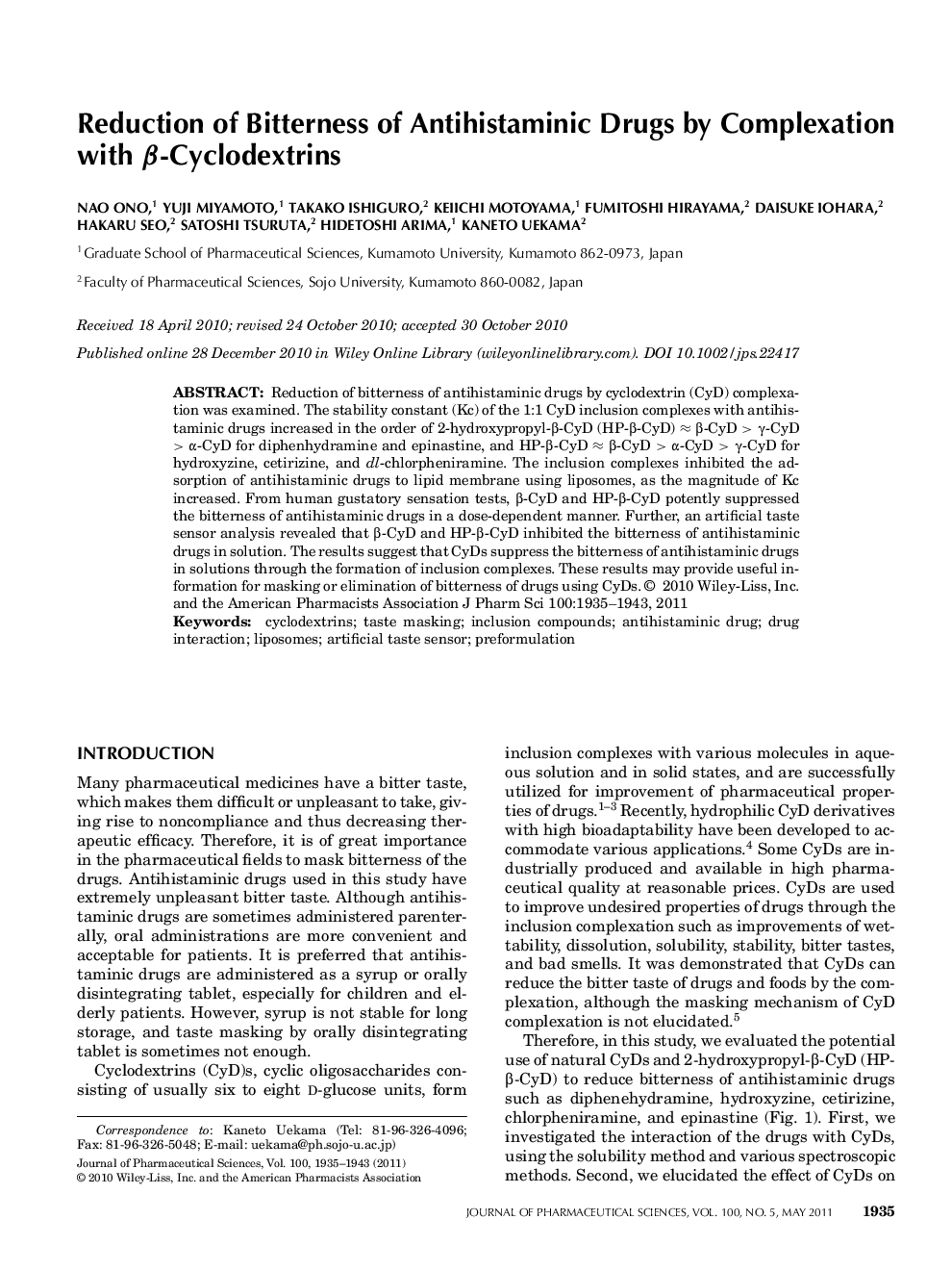| Article ID | Journal | Published Year | Pages | File Type |
|---|---|---|---|---|
| 2485623 | Journal of Pharmaceutical Sciences | 2011 | 9 Pages |
Abstract
Reduction of bitterness of antihistaminic drugs by cyclodextrin (CyD) complexation was examined. The stability constant (Kc) of the 1:1 CyD inclusion complexes with antihistaminic drugs increased in the order of 2-hydroxypropyl-β-CyD (HP-β-CyD) â β-CyD > γ-CyD > α-CyD for diphenhydramine and epinastine, and HP-β-CyD â β-CyD > α-CyD > γ-CyD for hydroxyzine, cetirizine, and dl-chlorpheniramine. The inclusion complexes inhibited the adsorption of antihistaminic drugs to lipid membrane using liposomes, as the magnitude of Kc increased. From human gustatory sensation tests, β-CyD and HP-β-CyD potently suppressed the bitterness of antihistaminic drugs in a dose-dependent manner. Further, an artificial taste sensor analysis revealed that β-CyD and HP-β-CyD inhibited the bitterness of antihistaminic drugs in solution. The results suggest that CyDs suppress the bitterness of antihistaminic drugs in solutions through the formation of inclusion complexes. These results may provide useful information for masking or elimination of bitterness of drugs using CyDs.
Related Topics
Health Sciences
Pharmacology, Toxicology and Pharmaceutical Science
Drug Discovery
Authors
Nao Ono, Yuji Miyamoto, Takako Ishiguro, Keiichi Motoyama, Fumitoshi Hirayama, Daisuke Iohara, Hakaru Seo, Satoshi Tsuruta, Hidetoshi Arima, Kaneto Uekama,
